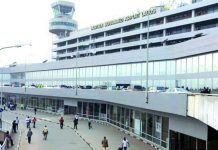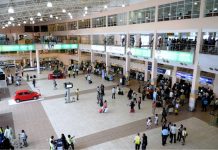The Minister of Aviation and Aerospace Development, Festus Keyamo, has announced that President Bola Tinubu has approved the concession of four major international airports in Nigeria. These airports include Murtala Muhammed International Airport, Lagos; Nnamdi Azikiwe International Airport, Abuja; Mallam Aminu Kano International Airport, Kano; and Port Harcourt International Airport. Speaking during a facility inspection at MMIA, Lagos, Keyamo emphasized the government’s commitment to finding world-class partners to manage and upgrade these airports.
According to Keyamo, the concession process under President Tinubu’s administration will be transparent, addressing the flaws in previous attempts that led to litigation. “The President gave us marching orders to ensure the process is transparent and to seek the best hands for managing our airports,” he said. The improvements will benefit Nigerians by delivering a more professional, world-class airport experience.
During the inspection, Keyamo highlighted some immediate upgrades at the E-Wing terminal of MMIA, including better lighting, new toilets, and clearer signage to enhance customer satisfaction. He also addressed passenger harassment issues at the airports, unveiling measures to combat touting and extortion. A QR code system has been introduced, allowing passengers to report incidents in real time. “Use the QR code and hotlines to report any harassment,” Keyamo urged, adding that the government is also taking steps to hold law enforcement personnel accountable for misconduct.
The Managing Director of the Federal Airports Authority of Nigeria (FAAN), Mrs. Olubunmi Kuku, echoed the Minister’s sentiments. She acknowledged the improvements made so far but stressed that they are only the beginning of a larger transformation. “This is not where we are going,” Kuku said. “We are working towards more extensive upgrades, but for now, these are the low-hanging fruits.”
Kuku also noted that the federal government alone cannot fund the necessary infrastructure improvements. She affirmed FAAN’s commitment to public-private partnerships (PPP) to attract investments for new terminals, expanded routes, and better facilities.
In line with this, both Keyamo and Kuku outlined future plans for the aviation sector, including further private-sector collaborations and concessions for the five major international airports. The Minister confirmed that the timeline for the concession process would soon be made public, with a focus on securing the best partners to manage and develop the airports to international standards.
As FAAN continues its reform efforts, Nigerian airports are expected to see substantial improvements in both infrastructure and passenger experience, with long-term plans in place to make the country’s aviation sector globally competitive.
















